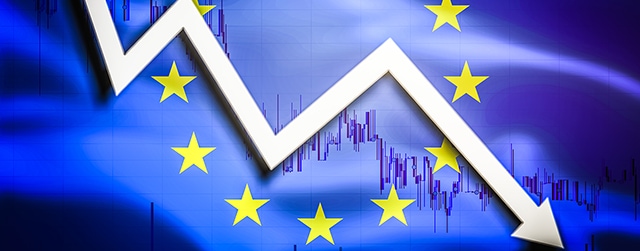Brexit, trade wars and recession fears are dampening the optimism of Europe's CFOs.

Business sentiment among European CFOs is at a historic low, especially in the UK and Germany, according to a Deloitte survey. The report coincides with the news that the UK has experienced its sharpest drop in private-sector output in over three years.
The Deloitte European CFO Survey for Autumn 2019—which approached nearly 1,500 European CFOs—said just 19% of CFOs felt optimistic about the financial prospects of their company versus 24%six months previously. At the same time, those feeling less optimistic rose from 26% to 36%, the highest since the survey began in 2015.
CFOs in the UK and Germany were among the most negative about the future. Around 44% of respondents in the UK and around 46% of respondents in Germany felt less optimistic.
“Trade disputes, elevated uncertainty, and a global slowdown have knocked the confidence of European CFOs,” said Ian Stewart, UK chief economist at Deloitte. “While European equities have soared, risk appetite in the real economy among CFOs has dropped to a four-year low. Faced with an uncertain outlook, CFOs are shelving investment plans and doubling down on cutting costs.”
As a result, the proportion of CFOs expecting to increase capital spending over the next year dropped markedly from 36% in the spring to 27%. In the UK, 78% of respondents plan to decrease spending—the highest in Europe. Meanwhile, the report said 32% of respondents plan to decrease headcountcompared to 27% the last time they were surveyed.
The report echoes the results of Deloitte’s UK CFO Survey for Q3 2019. In that survey, Brexit—as one would expect—remained a top risk for CFOs, followed by weak demand. Other domestic concerns included: poor productivity and weak competitiveness; global geopolitical risks caused by the US-China trade dispute and Middle East tension; and weaker growth in the Eurozone.
“Perceptions of uncertainty are elevated and corporate risk appetite is vanishingly low,” said Stewart in response to the UK survey. “The priority appears to be curbing costs, not expansion.”
Fears of a UK downturn at least seem well-founded. Last week, the flash reading of the IHS Markit/CIPS UK purchasing managers index for November reported a decline in both the services and manufacturing sector. The services reading was the lowest since July 2016, shortly after the Brexit referendum.
In a statement, IHS Markit’s chief business economist, Chris Williamson, cited the UK’s upcoming general election and continued macro uncertainty. He added: “The weak survey data puts the economy on course for a 0.2% drop in GDP in the fourth quarter, and also pushes the PMI further into territory that would normally be associated with the Bank of England adding more stimulus to the economy.”



